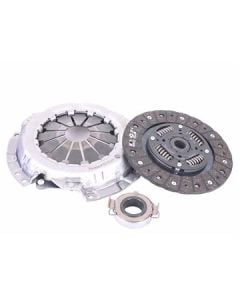Engine Acquiring Specialist Tips on Selecting the Right Engine for Your Details Demands
Selecting the right engine for your specific requirements involves a complicated interplay of factors that go beyond mere horsepower figures. By diving into the complexities of power versus performance, examining fuel ratings, and budgeting for long-term prices, one can genuinely optimize their engine selection.
Power Vs. Performance: Discovering the Balance

When selecting an engine, it is crucial to strike an equilibrium in between power and efficiency to meet your certain requirements effectively. Power refers to the engine's capability to create energy for propulsion, figuring out factors like velocity, pulling capability, and overall efficiency (Toyota Tazz Engine For Sale). On the various other hand, effectiveness associates to how well the engine utilizes fuel to create power, affecting factors such as fuel economic climate and environmental friendliness
Achieving the appropriate equilibrium in between power and performance is essential due to the fact that an engine that is as well effective may eat extreme gas, resulting in greater operating expenses and unnecessary pressure on the atmosphere. Conversely, an engine that focuses on performance over power may cause sluggish efficiency, especially popular scenarios like towing heavy loads or driving uphill.
To make a notified choice, consider variables such as your common driving problems, the intended use the lorry, and your personal choices. By evaluating your requirements and top priorities, you can pick an engine that strikes the ideal balance in between power and efficiency, making sure optimum efficiency while reducing ecological influence and operating costs.
Comprehending Engine Dimension and Kind

Furthermore, engine type plays a vital duty in determining the performance characteristics of an engine. Usual engine types consist of inline engines, V engines, and rotary engines, each with its unique advantages and drawbacks. The engine kind impacts elements such as the engine's dimension, weight circulation, and power delivery. Recognizing the interaction in between engine size and type is vital in selecting an engine that straightens with your details demands and top priorities, whether it be power, effectiveness, or a balance of both.
Consider Your Lorry's Needs
If you are looking for an engine for a sturdy truck that will be utilized for towing, you will certainly require a powerful engine with high torque abilities. On the various other hand, if you are selecting an engine for a small cars and truck largely used for city travelling, fuel performance may be a more vital aspect to think about.

Evaluating Gas Effectiveness Ratings
Analyzing gas performance scores is a critical element of picking the best engine for your vehicle, making certain expense savings and ecological sustainability. Gas efficiency ratings, typically measured in miles per gallon (MPG) for fuel engines or kilowatt-hours per 100 miles (kWh/100 miles) for electric engines, suggest how much a vehicle can travel on a certain amount of gas or electrical energy. Greater MPG or lower kWh/100 miles worths signify a lot more reliable engines, converting to decreased gas costs and lower carbon exhausts.
When assessing fuel performance ratings, consider your driving routines and needs. If you commute fars away daily, an extremely fuel-efficient engine can cause considerable savings gradually. In addition, contrast different engine choices within the very same automobile course to determine one of the most economical option. Variables such as engine size, weight, the rules of aerodynamics, and crossbreed or electrical capacities can all affect gas efficiency.
Budgeting for Long-Term Expenses
Purposefully intending for long-lasting costs is crucial when choosing an engine, click this link ensuring economic sustainability over the automobile's life expectancy. While the initial purchase price of an engine is a considerable factor, it is crucial to take into consideration the long-lasting costs linked with maintenance, fixings, and gas usage.
Moreover, researching the accessibility and expense of substitute parts for the chosen engine is essential in spending plan preparation. By meticulously budgeting for these long-term costs and factoring them right into the decision-making procedure, people can select an engine that not just fulfills their prompt needs however also remains affordable throughout its life-span.
Final Thought
Finally, selecting the best engine for your certain needs requires stabilizing power and effectiveness, recognizing engine dimension and type, considering your lorry's needs, assessing fuel effectiveness scores, and budgeting for long-lasting expenses. By very carefully considering these factors, you can guarantee that you select an engine that satisfies your demands and gives optimum performance for your vehicle.
To even more fine-tune the choice process of an engine that strikes the optimum balance in between power and performance, it is crucial to dive right into the details of comprehending these details engine size and kind. Engine dimension refers to the overall quantity of air and gas that can be pressed with click for source the engine cylinders. Usual engine kinds include inline engines, V engines, and rotating engines, each with its special advantages and disadvantages. Understanding the interplay between engine dimension and kind is crucial in picking an engine that aligns with your specific demands and top priorities, whether it be power, efficiency, or an equilibrium of both.
Fuel effectiveness ratings, typically measured in miles per gallon (MPG) for fuel engines or kilowatt-hours per 100 miles (kWh/100 miles) for electrical engines, suggest how much a car can take a trip on a details quantity of gas or electrical power.